Are you navigating the process of obtaining a healthcare facility license? It can be a bit daunting, but understanding the essentials can make a world of difference. From preparing your application to ensuring compliance with health regulations, we've got you covered with valuable insights. So, let's dive in and explore the key steps to secure your healthcare facility license!
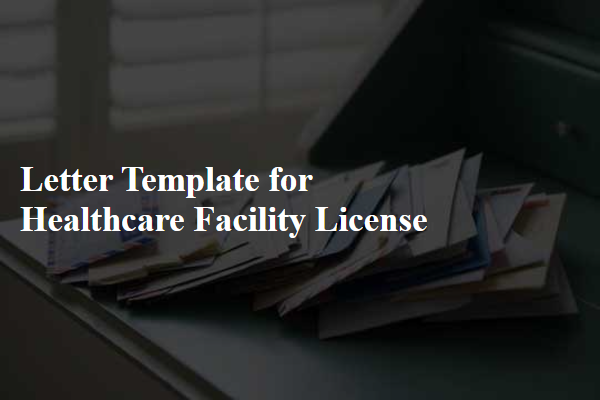
Facility Information
Healthcare facilities must provide comprehensive information when applying for a license, such as the facility name, address, and contact information. The facility type--be it acute care hospital, outpatient clinic, nursing home, or rehabilitation center--should be specified to ensure accurate categorization. Ownership details, including the entity or individual responsible (like a hospital corporation or a sole practitioner) and the names of key personnel--such as the medical director and administrator--must also be included for transparency. Licensing details from previous years, including violations or compliance status, support regulatory review. Additionally, a thorough description of the services offered, along with the number of patient beds (for inpatient facilities), operating rooms, and specialized departments (like emergency or maternity), provides insight into the facility's operational capacity and scope of care.
Licensing Requirements
Applying for a healthcare facility license involves adhering to specific licensing requirements mandated by regulatory bodies like the Centers for Medicare & Medicaid Services (CMS) or state health departments. These requirements typically include submitting detailed documentation, including operational policies, staff qualifications, facility safety assessments, and compliance with public health regulations. Additionally, facilities must demonstrate adherence to standards such as those outlined in the Joint Commission accreditation process, which evaluates healthcare quality and safety measures. The application process may also necessitate passing inspections conducted by state or federal authorities to ensure all safety and health regulations, including environmental controls and patient privacy protections, are adequately met. Furthermore, ensuring adherence to local zoning laws and building codes is essential for securing a healthcare facility license.
Compliance and Regulations
Compliance with healthcare regulations is crucial for securing a facility license. Various standards outlined by the Centers for Medicare & Medicaid Services (CMS) impact operational procedures. Clinical care quality requires adherence to the Joint Commission's accreditation criteria, including protocols for patient safety and infection control. Local health department inspections ensure compliance with state-specific regulations affecting facility conditions and staffing ratios. Proper documentation of employee credentials and ongoing training programs maintains compliance with federal and state labor laws. Additionally, implementation of electronic health record (EHR) systems can enhance regulatory compliance by streamlining patient data management practices.
Required Documentation
The healthcare facility license application process requires comprehensive documentation to ensure adherence to regulatory standards. Essential documents include proof of ownership, such as property deeds or leases for locations like hospitals in metropolitan areas or clinics in rural communities. Detailed operational plans outlining services provided, staffing qualifications, and patient care protocols are crucial. Compliance with safety regulations necessitates documentation of building inspections and fire codes (often mandated by local health departments), alongside medical waste management plans. Financial statements, typically from the last two fiscal years, are also required to demonstrate fiscal responsibility. Additionally, character references and background checks for key personnel (like the facility's medical director) may be mandated by state licensing boards. Accurate and complete submission of these documents can expedite the licensing process and uphold patient safety standards.
Contact Information
In order to obtain a healthcare facility license, accurate and comprehensive contact information is paramount. This includes the name of the healthcare facility, such as Springfield Medical Center, and its physical address located at 123 Health Lane, Springfield, IL 62701. Additionally, a primary contact person's name, for example, Dr. Jane Smith, along with their title, such as Medical Director, should be provided. Essential phone numbers, like (217) 555-0123 for general inquiries and (217) 555-4567 for urgent matters, should be included. Furthermore, an email address, such as info@springfieldmedical.com, is vital for electronic communications with licensing authorities. Lastly, the facility's website, if available, should be noted for further information, enhancing transparency and accessibility for prospective patients and relevant agencies.
Letter Template For Healthcare Facility License Samples
Letter template of inquiry regarding healthcare facility license requirements
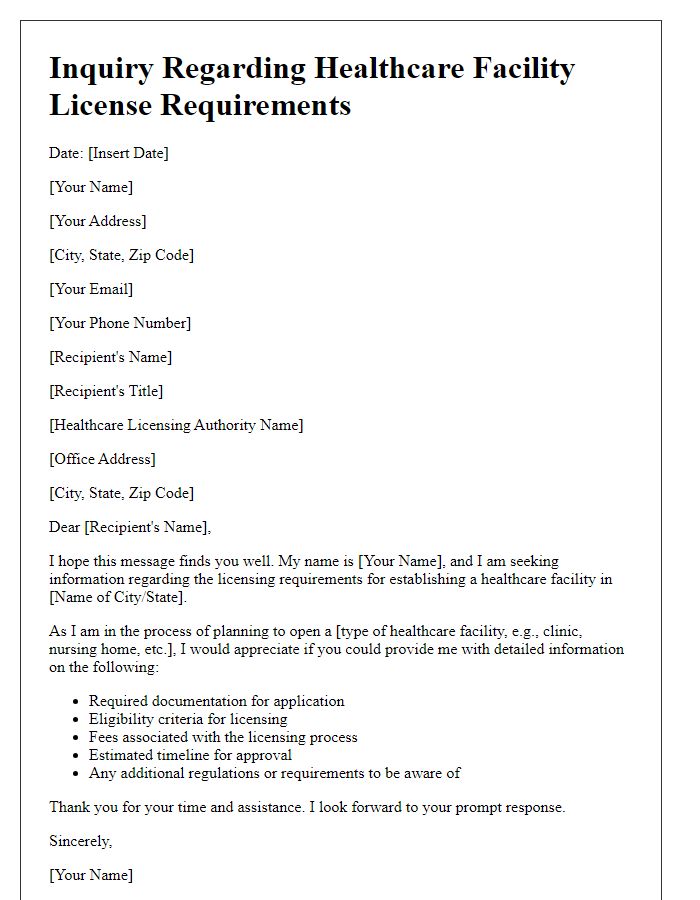
Letter template of notification for change in healthcare facility ownership
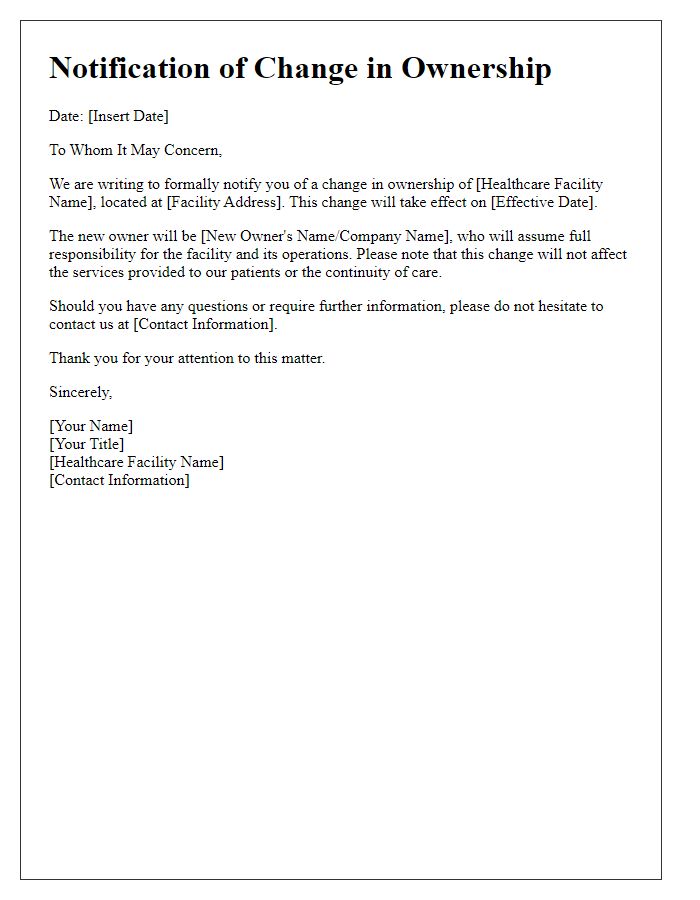
Letter template of complaint about healthcare facility licensing process
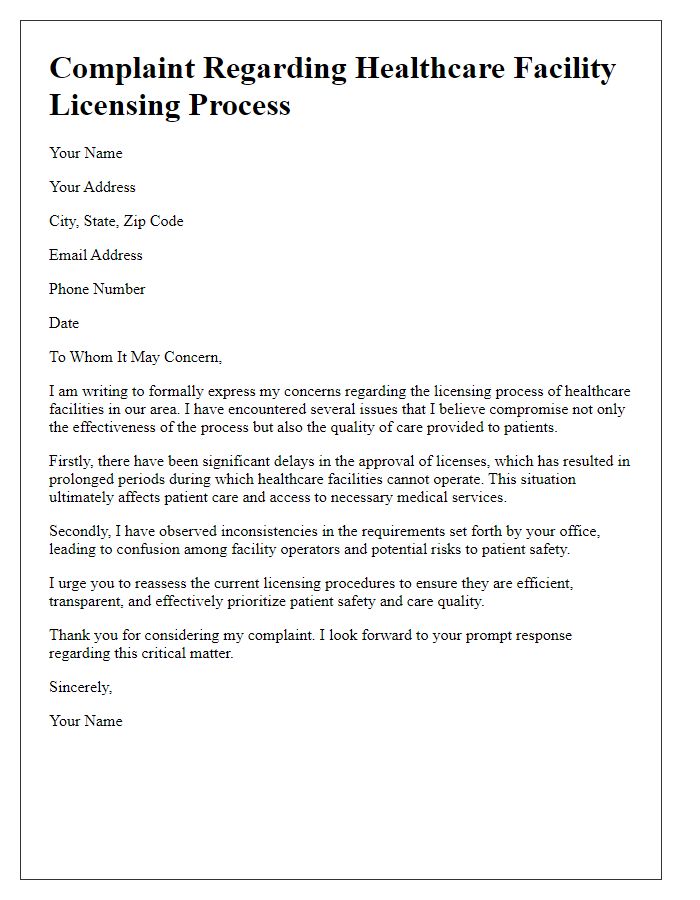
Letter template of administrative update for healthcare facility license
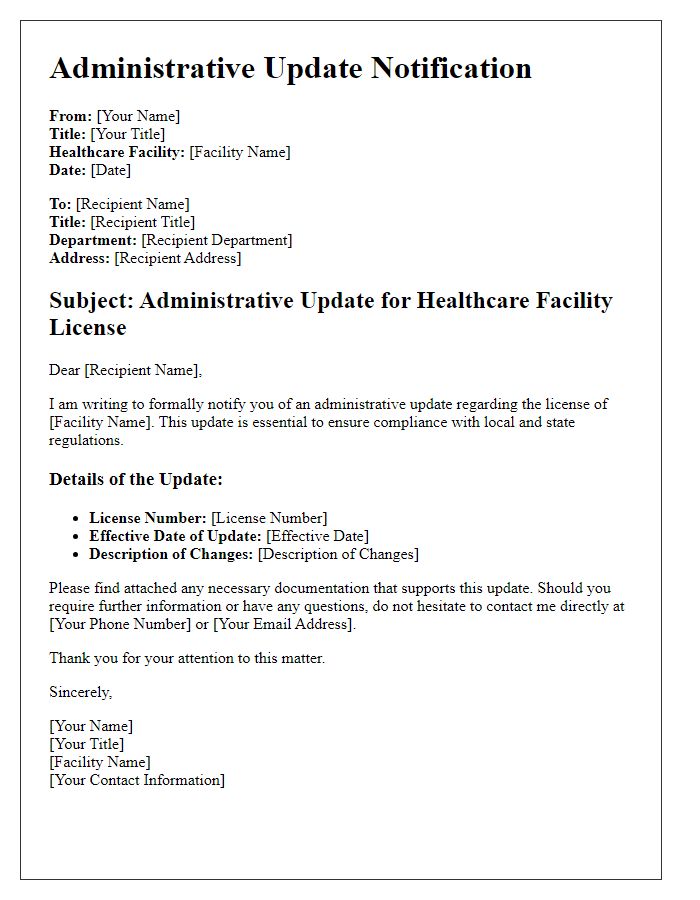
Letter template of request for expedited healthcare facility license review
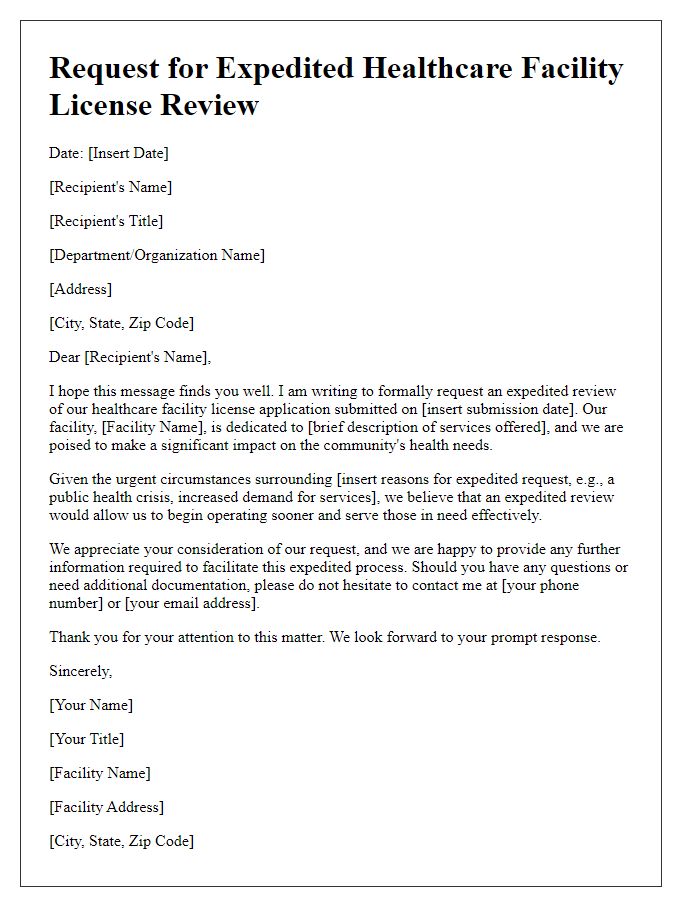

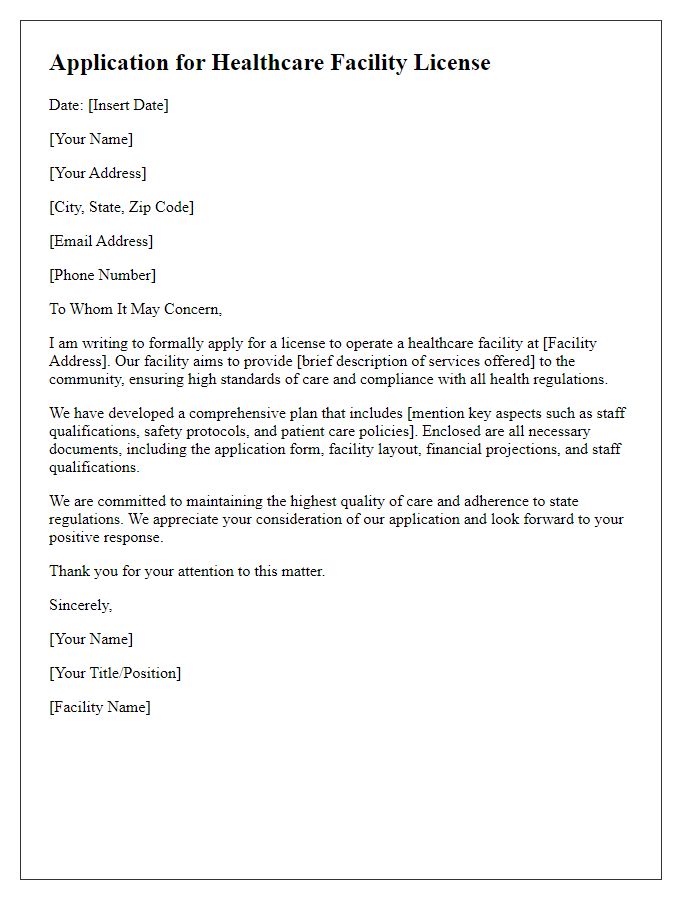
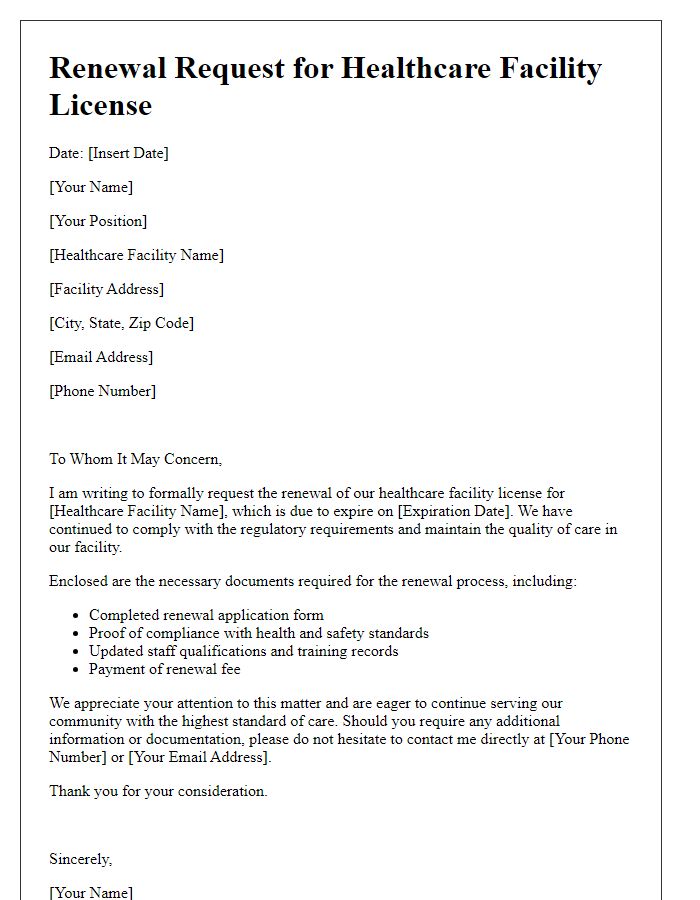
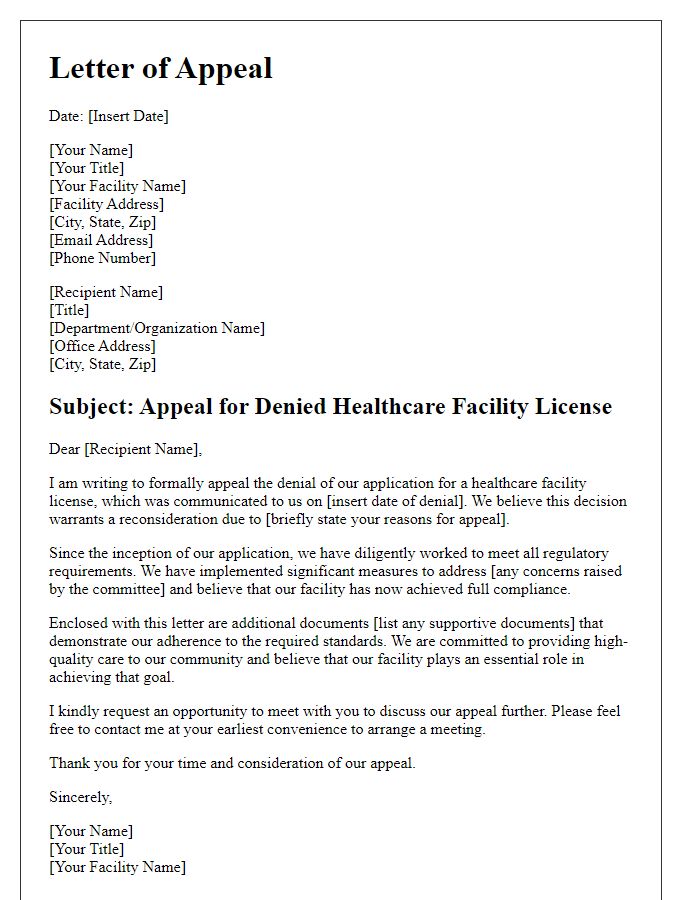
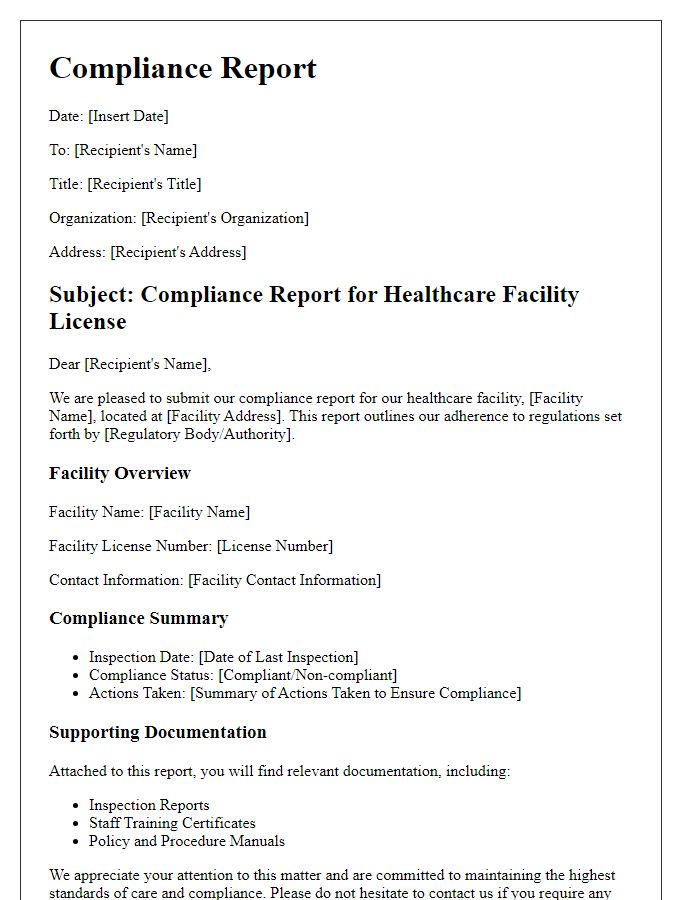
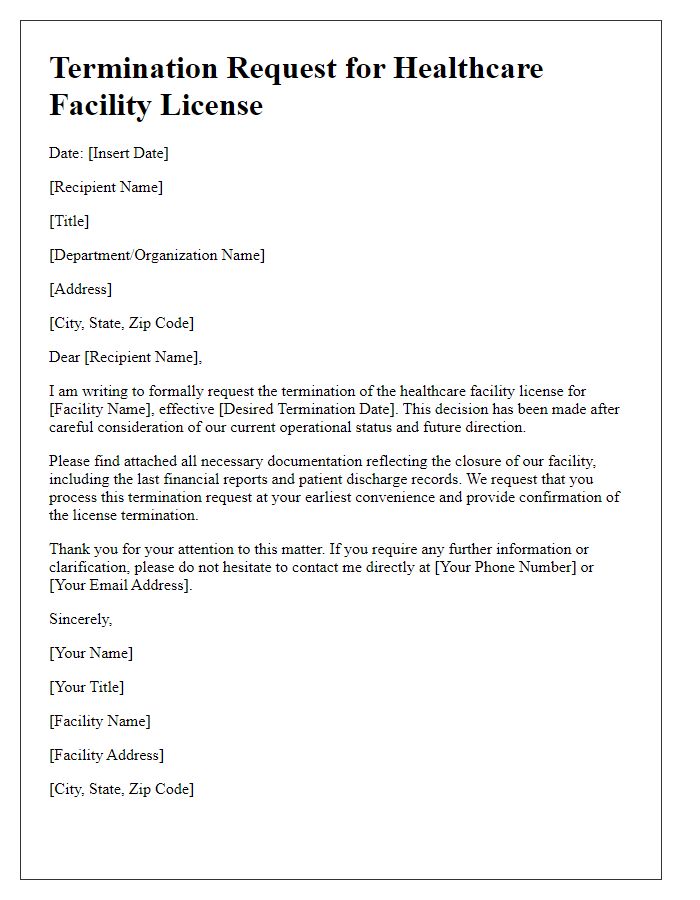


Comments